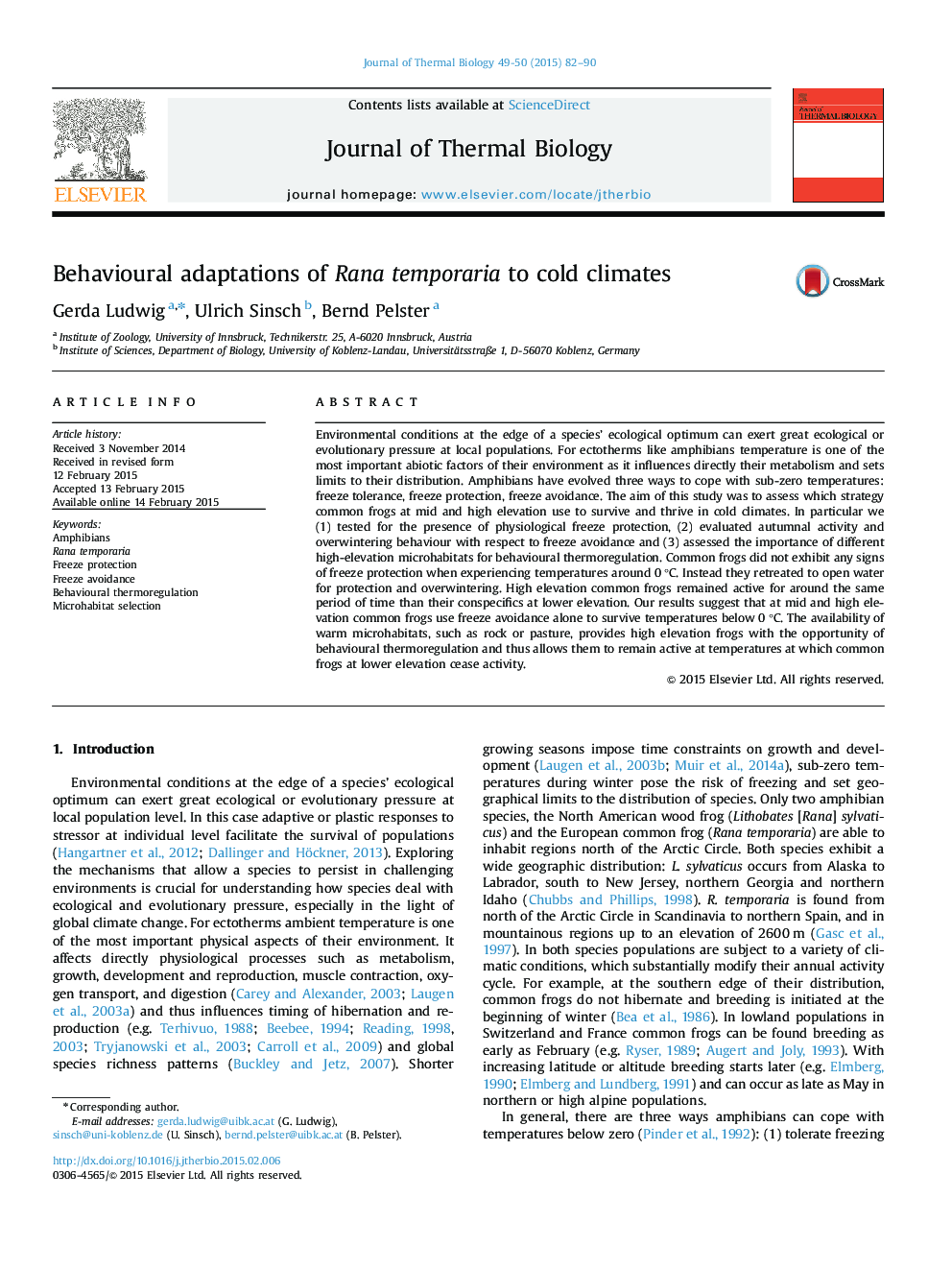| Article ID | Journal | Published Year | Pages | File Type |
|---|---|---|---|---|
| 2842761 | Journal of Thermal Biology | 2015 | 9 Pages |
•We tested for physiological and behavioural adaptations to cold climates in R. temporaria.•No evidence of freeze protection was found in subalpine and alpine adult R. temporaria.•Freeze avoidance is used to overwinter in regions with sub-zero temperatures.•Behavioural thermoregulation is suggested to allow common frogs to thrive in cold climates.
Environmental conditions at the edge of a species’ ecological optimum can exert great ecological or evolutionary pressure at local populations. For ectotherms like amphibians temperature is one of the most important abiotic factors of their environment as it influences directly their metabolism and sets limits to their distribution. Amphibians have evolved three ways to cope with sub-zero temperatures: freeze tolerance, freeze protection, freeze avoidance. The aim of this study was to assess which strategy common frogs at mid and high elevation use to survive and thrive in cold climates. In particular we (1) tested for the presence of physiological freeze protection, (2) evaluated autumnal activity and overwintering behaviour with respect to freeze avoidance and (3) assessed the importance of different high-elevation microhabitats for behavioural thermoregulation. Common frogs did not exhibit any signs of freeze protection when experiencing temperatures around 0 °C. Instead they retreated to open water for protection and overwintering. High elevation common frogs remained active for around the same period of time than their conspecifics at lower elevation. Our results suggest that at mid and high elevation common frogs use freeze avoidance alone to survive temperatures below 0 °C. The availability of warm microhabitats, such as rock or pasture, provides high elevation frogs with the opportunity of behavioural thermoregulation and thus allows them to remain active at temperatures at which common frogs at lower elevation cease activity.
